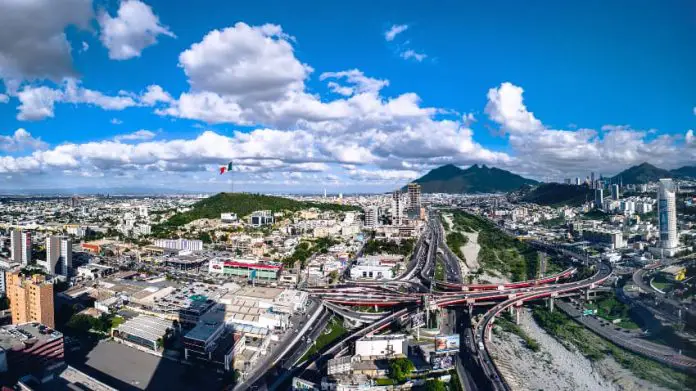In my column last week, I shared my thoughts on a book called “The end of the world is just beginning” by Peter Zeihan.
In the book, Zeihan predicts an accelerated collapse of globalization in the years to come. He also predicts that North America — and specifically Mexico — will be big winners in this new world order.
Today I will dig more deeply into the big question: Why will Mexico be a big beneficiary of the “collapse of globalization?”
Geography
The book talks a lot about the benefits of “good geography” and Mexico clearly has the huge benefit of proximity to the U.S. market, a massive shared border with the U.S., and access to oceans both to the east and west.
Demographics
In a world of rapidly aging societies, Mexico stands out as having a relatively young population and relatively high birth rates. The point is not that Mexico won’t at some point have a demographics problem, just that it will happen decades later than most of the rest of the developed and developing world. These “good demographics” ensure that Mexico will be one of the best-positioned countries globally to continue to ensure both growing domestic demand (consumption) from its citizens, as well as a growing workforce to supply companies looking for labor.
Food security
Mexico is a net exporter of food, and the food it does import largely comes from the United States. This puts Mexico in a relatively safe position with respect to food security in a deglobalizing world.
Energy security
Mexico produces a lot of its own energy and is in the process of increasing its refining capacity, with energy independence possible by 2027. Even if this goal isn’t met, the proximity to the United States energy production and refining centers in Texas ensures that Mexico is extremely well-positioned with respect to energy security in a deglobalizing world. Mexico also has significant untapped wind and solar energy potential that has yet to be realized.
Trade agreements
Mexico already has trade agreements with 50 nations globally and a multi-decade comprehensive trade agreement with the United States and Canada (the USMCA, formally NAFTA).
The latest version of this agreement, ratified in 2020, increased the amount of “local content value add” that must occur within the block of countries to 80% in order for goods to flow free of tariffs. This ensures that actual value-added work (not just final assembly of parts made elsewhere) occurs in the region. This is a hugely important clause to drive investment and employment in the USMCA countries.
Labor skills and costs
Many countries are finding that their labor costs have increased to a point in which their workforce is no longer competitive except for doing the very highest skilled work. In many cases, this has pushed the work to a lower cost country, often far away from the home country. In the case of the United States and Mexico, the two nations’ workforces are highly complementary. The high cost/high skill work can remain in the United States while the lower cost/lower skill work can be done in Mexico — ensuring that both parts are completed all within the same region.
Logistics
The COVID-19 pandemic opened the eyes of the world to the risks of long supply chains. Multinationals are now far more aware and concerned about the time, cost, and risks of long or complex supply chains. Mexico is exceptionally well positioned from a logistics perspective. Highways and railways that can quickly and with low cost supply the United States and Canada and shipping ports on both coasts to receive and ship goods around the world. Mexico is actually the solution to many of the supply chain concerns and problems that the world has today.
The above factors along with others mentioned in the book make Zeihan confident enough to predict that, over the next 30 years, Mexico will have the fastest-growing GDP of any nation in the world.
That is such an important point that I think that it is worth taking another minute to look at the list above again.
Ask yourself: Does any other country in the world rank as highly as Mexico does on this list of critical factors? It’s tough to come up with one.
However, Zeihan did highlight several areas in which Mexico must make improvements to fully realize this opportunity such as the rule of law, expanding quality and depth of financial markets and dramatically improving infrastructure.
Zeihan stated that Mexico needs over US $1 trillion in infrastructure (transportation, energy, and water) investment in the near future to fully realize its potential, and that the country is actually already years behind on this important investment. Lack of investment in this area would act as a significant drag on the growth potential.
I ended the discussion by asking Peter what he would say to the many cynics who suggest that Mexico has a tendency to often under-perform versus its potential.
He stated that this opportunity is so big, and the relative strengths of the region so strong, that Mexico will benefit regardless of what has happened in the past. He sees Mexico “winning” in any political or economical scenario that could take place going forward. The next president of Mexico, to be decided in just a few months, has a huge responsibility to deliver on the promise of this opportunity.
It’s inspiring and motivating to read such a positive outlook for North America — albeit a decidedly not very positive one for the world — presented in the book. Mexico truly has a golden opportunity with this rapidly changing and deglobalizing world.
We at Mexico News Daily are committed to giving you a front row seat to see the action!
Travis Bembenek is the CEO of Mexico News Daily and has been living, working or playing in Mexico for over 27 years.
